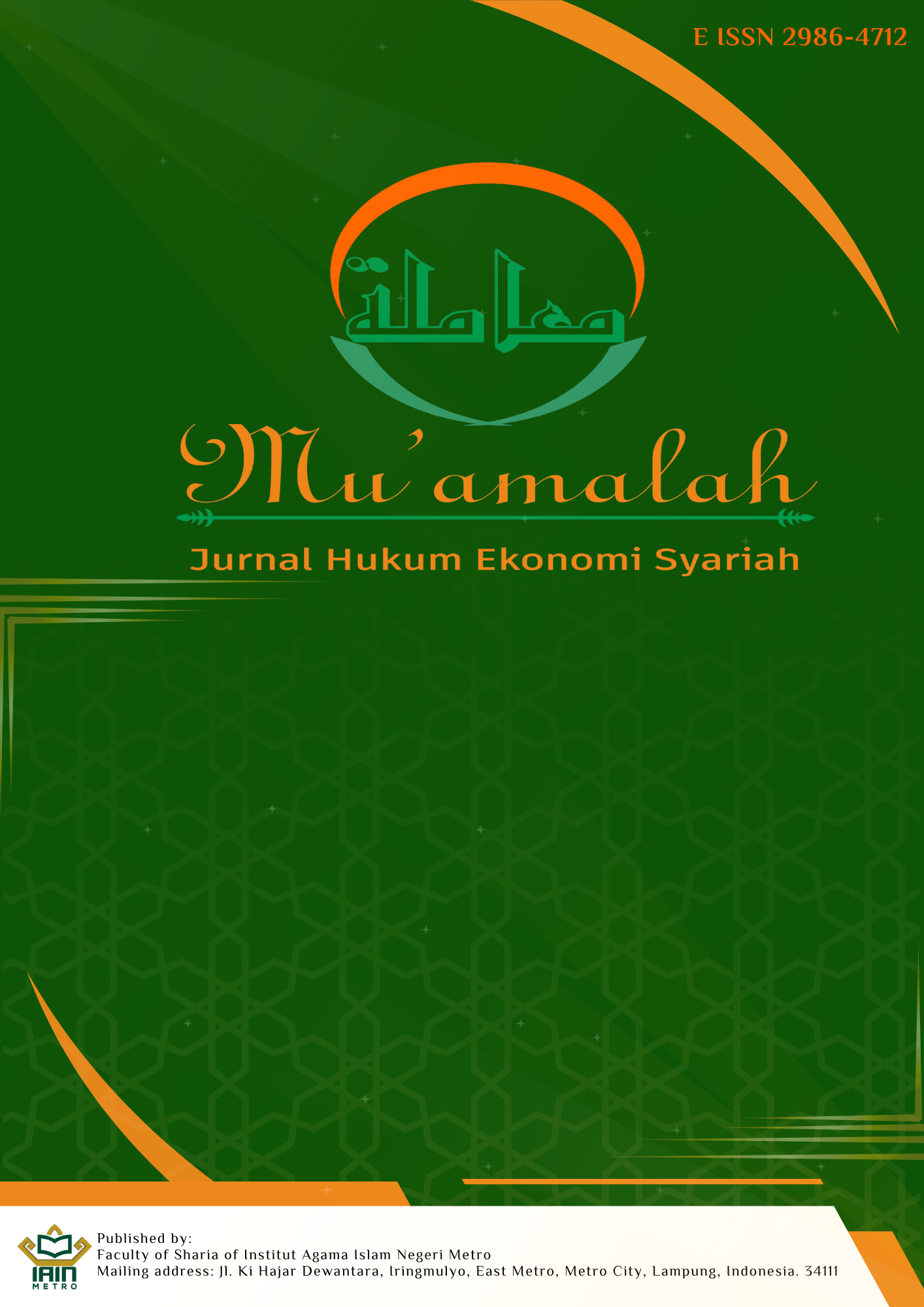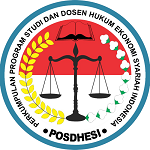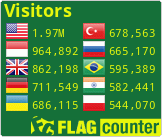Kontribusi Hukum Islam dalam Pembangunan Ekonomi di Indonesia
DOI:
https://doi.org/10.32332/muamalah.v1i1.3478Keywords:
Hukum Islam, Ekonomi Islam, Pembangunan EkonomiAbstract
Islam, as a divine religion revealed to Prophet Muhammad through the angel Jibril, has provided comprehensive guidance for human life, from general matters to specific aspects. One of the key areas addressed in this paper is the foundation and principles that underpin the development of Islamic economics, particularly in Indonesia. This study aims to examine the impact and contribution of Islamic law in shaping Islamic economic development in Indonesia. Islamic law serves as a guiding framework for human life, especially in economic activities, which are integral to daily existence. The paper explores how humans can optimize their intellect and conscience in aligning their actions with the teachings of Islam in economic practices. Specifically, it emphasizes the importance of justice, fairness, and public benefit as essential elements of Islamic economic development. The pursuit of profit at the expense of others' welfare has led to dissatisfaction and unrest, highlighting the need for a system that prioritizes collective well-being. By maximizing natural resources and human resources in accordance with Islamic principles, a just and prosperous society can be achieved. This paper aims to raise awareness about the responsible stewardship of resources, ensuring sustainable development for future generations in line with Islamic teachings.
Downloads
References
Downloads
Published
Issue
Section
License
Copyright (c) 2022 Tri Winarti

This work is licensed under a Creative Commons Attribution-ShareAlike 4.0 International License.
All articles in the Mu'amalah: Jurnal Hukum Ekonomi Syariah can be disseminated on condition that they still include the identity of the article and the source (Mu'amalah). The publisher is not responsible for the contents of the article. The content of the article is the sole responsibility of the author.
Authors who publish this subject agree to the following terms:
First, the Authors retain copyright and grant the journal rights from the first publication with the work simultaneously licensed under a Creative Commons Attribution-ShareAlike 4.0 International License that allows others to share the work with an acknowledgement of the work's authorship and initial publication in this journal.
Secondly, the authors can enter into a separate or an acknowledgement of its initial (e.g., post-institutional repository or publish it in a book) publication in this journal.
![]()
Third, the authors are permitted and encouraged to post their work online (e.g., in institutional repositories or on their website) before publishing work is cited.








